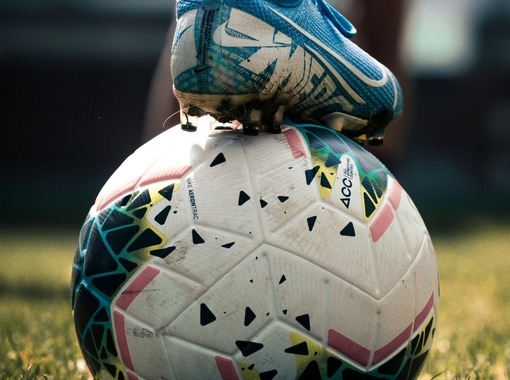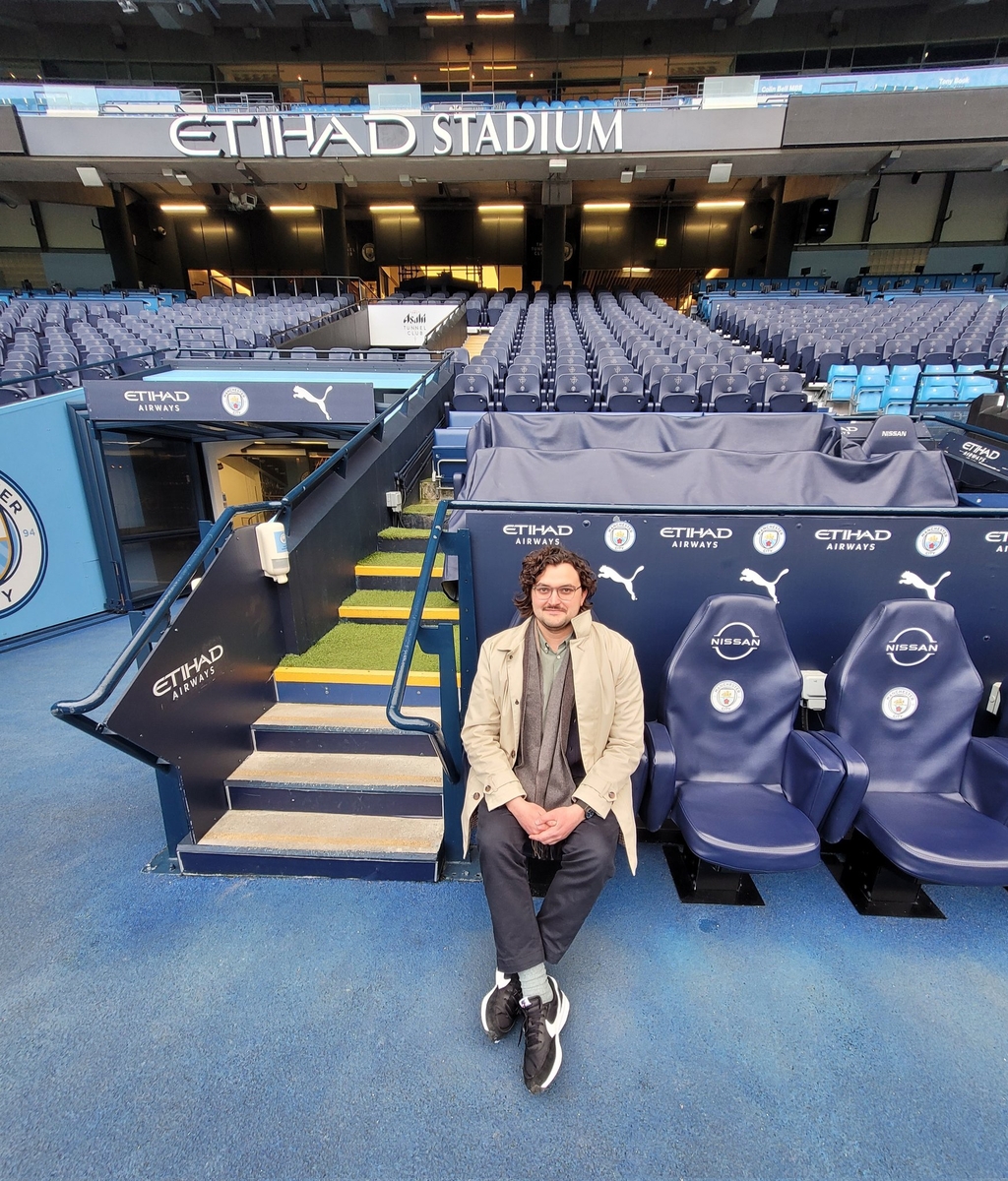Many people are glued to their screens these days to follow the best footballers of the continent competing in the UEFA Men’s European Championship. This is a massive event since football is the most popular sport in the world. However, international sports tournaments that are in the spotlight at any given time have various aspects that are not always apparent. Some elements in sports are not just intertwined with culture but also with politics, and this is currently being researched at the University of Iceland.
“I am studying the political significance of major sporting events, such as the European and World Championships in football and the Olympic Games. My approach is to assess public memory regarding these events and their media coverage. My research spans events hosted by more than one country simultaneously, like the last men's Euros, or entirely by a single nation. In this context, I am examining events comparatively organized by both democratic countries and authoritarian regimes.”
So says Vitaly Kazakov, a postdoctoral fellow at the University of Iceland, about his intriguing research, which he is currently working on, involving sports and various political challenges. The research is conducted at the School of Humanities and is supported by RANNÍS.
Vitaly, born in Russia but raised in Canada, has a broad perspective on his subjects. He notes that major sports events generate enormous interest among the public and media, unparalleled by other events. These tournaments not only capture attention but also lead to significant expenditures and investments, alongside sparking intense political debates and even conflicts. Vitaly explains that sports and politics are intertwined in various ways, with mutual influences where politics impact sports and vice versa.
“When Russia invaded Ukraine in 2022, one immediately saw calls in posts from news outlets like BBC and the Guardian in the UK to exclude Russian sports teams from international competitions and to relocate the Champions League Final from St. Petersburg.”
Sports, conflicts, crises, and politics interwoven
Vitaly mentions that despite the complexity when political challenges intersect with major sports events, there is a scholarly distinction between events interpreted to solely bring joy, like sports tournaments, and events that have an entirely political nature and are associated with potential challenges, conflicts, wars, or crises.
“It is thus very surprising that sports are often not taken seriously as an academic subject in political science and media studies alike despite their enormous appeal, public interest, and extensive media coverage.”
Vitaly says that reality is sometimes complex when examining both politics and sports. For instance, when the Icelandic men's national team knocked out the English team in 2016 from the European Championship in France, the British and international reactions also included Brexit as an important political context for the embarrassing loss by the English team – as the Brexit vote and the famous match happened in the same week. Icelanders and many other nations attended the World Cup in Russia in 2018 despite the conflicts in Eastern Ukraine. Additionally, people travelled across the continent for the pan-European Euro 2020 tournament in the midst of a pandemic.
“Sports, conflicts, crises, and challenges are intertwined, as prominently evident in the media. We need to scrutinize this complex relationship to understand its significance. We also need to understand the actual political effects of major sports events and how they shape people’s understanding of the political world around them.”
“Sportswashing and soft power”
Vitaly is fully engaged in his project these days, with no shortage of material or motivation as sports tournaments are constantly in the media spotlight. Currently, not only is the European Championship taking place, but the best footballers of South America are also competing on the continent’s finest pitches at Copa America.
“I am looking back in time, examining the interplay between Iceland, England, and Russia’s fans and media personnel’s experiences during the 2016 European Championship, the Russian World Cup in 2018, and the Euro 2020. I am exploring how these significant sports events overlap with Brexit, the war between Russia and Ukraine, and the Covid-19 pandemic. I am excited to see how different political and media environments, along with experiences from these tournaments, shape public understanding of sports events on one hand and political challenges or crises on the other,” says Vitaly.
In his research, Vitaly uses concepts like “soft power” and “sportswashing,” the latter of which relates to the term “whitewashing” commonly used in Iceland and other countries. According to the Árni Magnússon Institute, the term “whitewashing” is most often used metaphorically to describe attempts to cover up mistakes or misconduct, or to clean up accusations of harmful or criminal activities. “Sportswashing” then refers to using sports to cover up something that should not be visible. “Soft power,” on the other hand, is not coercive but relies on diplomatic means to achieve success, where culture stimulates change rather than the use of force.
“I am very excited about my project and have already talked to sports fans, journalists, sports, and governance experts about their memories and experiences from three recent tournaments. This helps me understand and explain the lasting political implications for both societies that hosted these events and the public who experienced them either in person or through the media,” says Vitaly. image/Unsplash/Connor Coyne

Vitaly wants to see through his research whether sportswashing and soft power have lasting effects for the countries hosting the tournaments. “I want to understand how these effects manifest. I also want to understand how sports are intertwined with political developments and challenges. My hope is to help societies learn from past sports events.”
Are we all complicit by participating?
“My previous research on the political use of the Sochi 2014 Olympics and the Russia 2018 FIFA World Cup suggests that the tournaments themselves operate on their own terms and do not wish to serve as straightforward tools of ‘soft power’ or propaganda. Yet, the tournaments have a lasting significance for how the public interprets the political world around them. I suspect this will also be the case in my new research, but I am excited to see the differences between dissimilar political and media environments in the national contexts I am exploring.”
Vitaly raises a very challenging question: Are we all complicit in “sportswashing” when we attend and enjoy watching competitions like the 2018 World Cup in Russia or the 2022 World Cup in Qatar, considering the significant political controversies associated with these tournaments?
“Or,” Vitaly asks, “are such events actually encouraging change for the better—at least to some degree—and promoting important diplomatic projects through sports?”
Exciting developments
The scientist notes that there has been little focus on the question of how the public remembers such events and what their political legacy is and how they have been mediated.
“That’s why I am very excited about my project and have already talked to sports fans, journalists, sports, and governance experts about their memories and experiences from three recent tournaments. This helps me understand and explain the lasting political implications for both societies that hosted these events and the public who experienced them either in person or through the media.”
For those interested, more information about the research can be found in Vitaly’s blogs where insights from his pilot interviews in Iceland are also featured.
- “SPORTSWASHING” as disinformation. Part I: The Power of “SPIN” through popular sports events
- “SPORTSWASHING” as disinformation. Part II: How to address the audience dimension to sportswashing
Vitaly intends to conduct more interviews and media research along similar lines in England and Iceland, focusing on the interplay between sports and political aspects related to sports tournaments in the Icelandic, English, and Russian contexts. Vitaly recently also organized a symposium with the Institute of History at the University of Iceland on the role of sports in foreign policy and sport diplomacy. Special attention was given to stakeholders and their roles in utilizing sports for cultural, economic, and political purposes. Both domestic and international experts in this field spoke and sought answers to the numerous questions concerning sports, culture, economics, and politics.




